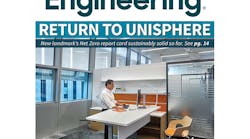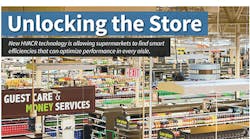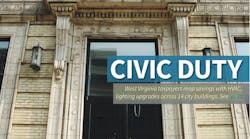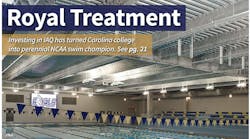The services provided by mechanical engineers are crucial to the success of sustainable or “green” projects. It is vital to select a qualified professional or firm that will complement your project team.
Mechanical engineering requires specialized education, work experience, and a license issued by the state in which the project will be built. Each individual engineer working on a project may not need to be licensed, but the engineering work must be performed “under the direction and control” of a licensed professional engineer as defined by state statute. There is both professional liability and responsibility to the general public under these statutes.
Some services a mechanical engineer might provide for a green or sustainable building project include:
-
Design of HVAC systems.
-
Design of plumbing and/or fire-protection systems.
-
Design of specialized piping systems, such as those for medical gases, laboratory gases, and waste liquids.
-
Analysis of the building's heating, ventilation, and cooling loads.
-
Evaluation of energy-efficiency impacts of various mechanical- or lighting-system applications, as well as building design alternatives (energy analysis).
-
Evaluation of water-efficiency impacts of various equipment, systems, and building options.
-
Testing, adjusting, and balancing of mechanical systems.
-
Commissioning of mechanical systems.
-
Life-cycle-cost analyses.
-
Building and systems energy modeling and hourly simulation.
-
Sustainability consultation (typically by an engineer who is a Leadership in Energy and Environmental Design- accredited professional).
-
Testing, measurement, and verification of system performance.
Have a clear project scope of work and description of the project and its sustainability and energy-efficiency goals, and provide this to prospective consultants. This essential document may alert engineers who do not have the requisite experience or interest to decide not to participate, thus assisting with the selection process.
The Interview
A major component in the success of any project will be the chemistry among the individuals involved in the project. Thus, it is recommended that the interview be conducted by a team that includes those in your firm who will be working directly with the engineer. Also request that the engineering firm send to the interview those individuals who will be communicating with your personnel.
The interview will allow you to judge the sincerity and knowledge of the engineering team, but be aware that good interview skills do not necessarily translate to good design skills. Look for a personal commitment to the profession and, in particular, to green principles. Such a commitment may provide the added energy that often is needed to come up with creative solutions to making green concepts work for a project.
Have a discussion of some cutting-edge green or high-efficiency mechanical systems. Develop an impression of the engineer's level of knowledge and expertise in these areas.
Talk about budget impacts of green and energy-efficient design. This should be interesting, as there is no consensus in this area. Two schools of thought are that green can be accomplished at no additional cost and that green always adds cost. There are conditions and circumstances that apply to each concept and the engineer should have some awareness of those factors. There is even disagreement over whether compromise is necessary, so there are plenty of topics to explore.
Integrated Design
The success of a building in achieving energy-efficiency goals is not solely dependent on a good mechanical design. Rather, it often requires that the design be better integrated into the building's other systems than for most traditional mechanical designs.
All of the disciplines involved in a project will need to carefully integrate their designs, so the selection of other team members is important to the success of the mechanical engineer.
Keep in mind that many green or sustainable technologies or energy-efficiency concepts are above and beyond the normal standard of care for the construction industry. The success of a building in achieving sustainability and energy-efficiency goals will, therefore, be highly dependent on having a process of education for the contractors, as well as an effective methodology for enforcement of project requirements.
Questions to Ask
When selecting a mechanical engineer, review the general guidelines for selecting a green design professional (see “Steps to Selecting a Sustainability Professional,” HPAC Engineering, October 2011, http://bit.ly/sustainpro). Then, review the questions below. This guide should help you conduct a thorough selection process.
-
What are the potential savings from daylighting?
The engineer should be aware of, and have an opinion on, the possibility of reducing mechanical-system size when daylighting is successfully employed.
-
What factors influence the success of achieving potential savings from daylighting?
The engineer should want to know about the daylighting design process and who will do that design, as well as discuss assurances that the daylighting design will be successfully implemented.
-
What energy-efficient technologies do you recommend for mechanical systems?
There are myriad possibilities here. Those that are suggested may give some insight into the budget restraints of the project in question. Some possibilities include ground-source heat pumps, variable-air-volume systems, variable pumping, thermal storage, solar heating, direct and indirect evaporative-cooling, natural ventilation, radiant heating and cooling, distributed systems, high-efficiency boiler technologies, air and water economizers, heat recovery, and heat-recovery ventilators.
-
What computer programs do you use for estimating heating and cooling loads?
There are many possibilities here, including vendor programs, software-company load programs, freeware programs, energy-simulation programs, and in-house load programs. You'll want to hear about how well a program can meet a project's needs.
-
Do you provide cost estimates (or cost opinions) and, if yes, how are those developed?
Most experienced engineers will have familiarity with the cost of mechanical systems. However, the engineer does not control the factors that determine the ultimate cost, such as contractor markups, how “hungry” the market is at bid time, and interaction with other trades.
There will be times when bids do not match estimates and the ability to estimate costs will be valuable in evaluating alternatives to bring the project back into budget or to modify the budget. This is particularly true of green and energy-efficient projects when the contractors are not familiar with the technologies. The engineer also has an advantage in that he or she has a vision of the entire project, not just those parts that are shown on early stage drawings and documents.
-
What is your experience with energy-efficient and/or green mechanical systems and projects?
While not essential (after all, you may be looking for the creativity to do what has not been done before), all things being equal, experience certainly is valuable.
-
Can you talk about some of the sustainable or green technologies for mechanical systems?
Look for ideas that go beyond energy efficiency. Many candidates are only aware of energy-efficiency impacts of mechanical systems. While there will be controversy, there should be awareness of issues and technologies that may apply. Some examples include non-fiberglass duct insulation material and the need for fire resistance in it, non-PVC piping materials, the embodied energy in various materials (such as whether aluminum in products is recycled or virgin), and alternatives to chlorofluorocarbons and hydrochlorofluorocarbons as refrigerants.
-
Who will be the person(s) performing the mechanical design and communicating with the rest of the project team?
Ask to get the personal resume for all people who will be involved in the mechanical design, as well as a description of each person's core skills and the value added to the project.
-
What is the firm's project-management approach?
Be sure you are comfortable with the process used by the firm to ensure quality services and manage risk.
-
Why should I hire your firm as the mechanical engineer for this project?
Have engineering candidates give you the reasons they think you should hire them. This will let you know if they understand the needs of your project and how their experience meets those needs. Answering this question may bring to light additional direct and indirect benefits they will bring to the project and help you make the final decision.
Michael D. Haughey, PE, HBDP, CEM, LEED AP, is principal of Silvertip Integrated Engineering Consultants. He has 37 years of experience in HVAC and mechanical consulting, facilities engineering, energy analysis, systems commissioning, and sustainability consulting. He is past president of the Rocky Mountain chapter of ASHRAE; a member of the board of directors of the Colorado Renewable Energy Society; a member of the board of directors, education director, and program director of United States Green Building Council-Colorado; past Greenbuild host committee chair; and a former instructor of HVAC design at Colorado University.
For previous Managing Your Facilities columns, visit www.hpac.com.








